Decoding the Turkish coup
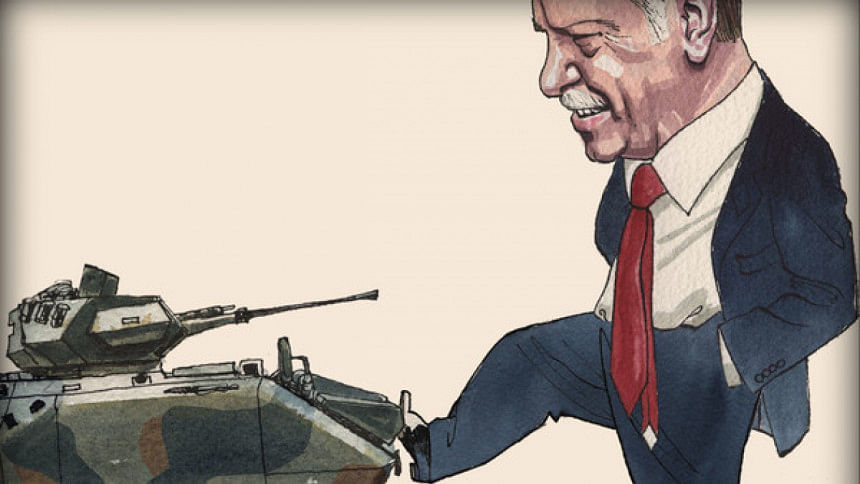
Most foreign observers are puzzled by the popular support for President Erdogan in the failed coup of Friday night, July 15, 2016. Why this support when he has been so authoritarian in his presidential role? And how come he is getting away with the unprecedented purge that looks like a massive crackdown on enemies and consolidation of power?
The cue to decoding the paradox lies in the fact that Turkish citizens know about the Gulen Movement. It seeks to build a "parallel state" on the road to an Iranian-style theocracy. For Kemalists and secularists, it is a huge tarikat (secret societies, religious or charitable, but also political) the forerunners of which had challenged Mustafa Kemal so violently in 1920s at the start of the Turkish Republic.
It is, of course, a story of clash of two personalities: Fethullah Gulen and Receb Tayyib Erdogan. Both Islamist and allies till a few years ago, they are now bitter enemies. Their enmity is now wrapped up in the Syrian conflict and Big-Power geopolitics.
Who is Gulen? He is a self-exiled Muslim cleric, living in Pennsylvania, USA. He is super rich, having made his fortune from a network of 'prep-schools" in Turkey, which subsequently grew into a multinational educational conglomerate. Gulen's schools are considered the very antithesis of Koran-teaching medreses, often accused of training Jihadists. They are modern, focused on liberal arts.
The Gulen Movement is mysterious and international with schools and institutes in Asia, Africa and North America. In the USA, Gulenists run the biggest charter schools and are often subject to tax investigations. In Kanata, near Ottawa, there is a Gulenist 'Intercultural Dialogue Institute' which maintained warm relations with the former Harper government. Like an iceberg, one sees only 10 percent of what the Gulenist movement represents.
Gulen has effectively been under American protection, thanks in part to his NeoCon links, because he represents "Moderate Islam" (as alternative for radical, Jihadist Islam), a brand that is part of the US model. This is a NeoCon scheme to reshape the Muslim world. It is strongly rejected in Ankara which has no interest in exporting religious ideology.
There does not appear to be any credible evidence of American role in the coup. But, American policy in Syria and Iraq are very much factors. Specifically, the relative American failure to stem the Syrian conflict, lack of success against ISIL terror globally, and most significantly its opting for Kurdish PYD alliance, has angered Ankara. The rise of Russian and (in the background) Iranian support for Assad is also relevant, along with Brexit and indifference of Europe to do anything about the Syrian conflict beyond entering into a refugee agreement with Ankara to contain flooding of refugees into European territory.
Recently, the Syrian conflict has spilled over into neighbouring Turkey, already bulging with some three million refugees. The nation is divided over an existential war with PKK separatists. Daily lives and security of ordinary Turkish citizens have been badly hit by waves of terrorist attacks in Ankara, Istanbul and other Turkish cities, exposing state weakness to protect life and property.
In a divided society, the Gulen phenomenon is the last straw. The exiled cleric fell out with his former friend and ally Erdogan first over corruption charges, over youth and education policy and finally, over the handling of the Gezi Park demonstrations. Erdogan, never tolerant with dissent, reacted with limited purges of Gulenist supporters in the judiciary and public service.
But the Gulenist rot ran deep. Turkish society is cult-oriented, organised on clannish lines in a local feudal system. These are tarikats that owe allegiance to its chief or the sheik at its head. Gulen has, over the years, channeled his wealth into building and nurturing an elaborate cultist system. He owned newspapers, TV and movie stations, and his secret societies expanded with members from academe, military, civil service and judiciary.
To what aim? To prepare the social and political ground for Gulen's triumphant return from exile similar to Khomeni's success in Iran. With his (undemocratic) assumption of power in Turkey, Gulen would establish a Turkish theocracy, a living example of the US 'moderate Islam'.
Erdogan, very much the darling of USA Mideast think-tanks in the early days of the Obama administration, has in recent years pulled away from 'moderate Islam' schemes. He has felt "betrayed" by Obama's U-turn on Assad, and has become increasingly critical of US policies in Iraq and Syria. Recently, the US has opted for alliance with the Kurds, not only in Northern Iraq with whom Ankara has good relations, but what is anathema to Ankara, with Kobani Kurds, the PYD, an affiliate of PKK which, strictly speaking, is a terrorist organisation in the USA and Europe.
But, Erdogan's terrorists are not necessarily Obama's. Just recently, the Pentagon signed an agreement with the Kurds to launch a fight to retake Mosul, Iraq's second largest city, now under ISIL. Ankara views the US-Kurdish alliance with alarm, wondering if it signals the first stage in the dismemberment of Turkey with American endorsement, toward the creation of independent Kurdistan. Repeated Turkish warnings have fallen on deaf ears in Washington, DC, in part owing to Neo-Con influence.
Now, the geopolitics of the region are changing fast. Erdogan has ended his feud with Israel. No less importantly he has promoted normalisation with Putin, whom he will visit in Kremlin. He is also warming relations with Iran. All this is intended to assert a new Syrian policy in Ankara, aimed at preserving the existing national boundaries in the region. Ankara is acting more independently, reacting to what it sees as a strategic American vacuum on Syria at a time when Europe is entering structural and long-term uncertainty over Brexit. Erdogan is hedging that EU needs Turkish cooperation over refugees immediately, while Brussels' influence in post-coup Ankara remains rock-bottom, victim to years of double-standard in EU handling of Turkish membership talks.
The price for these new realignments may fall on ordinary Turkish citizens. For the next three months, likely much longer, it seems, with a civilian-run state of emergency, Erdogan will be the strongman in Ankara as Gulenist cells in the country are rooted out. Hopefully, the death penalty will not be reinstated and vengeance will not determine post-coup purges.
Turkish people have saved democracy. From this point forward, Erdogan's Turkey will build a new system of political stability, the army will be remade under presidential rule and economic confidence may rebound. As for the existential threat of PKK separatism, it will be contained either through a closer Russian-Turkish deal, possibly in the context of a Syria deal, or, as part of renewed relations with the US. The latter will largely be determined by the extent of American cooperation with Ankara over the Gulen extradition and how a post-conflict Syria and Iraq are rebuilt.
The writer is Senior Fellow, Modern Turkish Studies, Distinguished Research Professor, International Affairs (Emeritus), Carleton University, Ottawa, Canada.

 For all latest news, follow The Daily Star's Google News channel.
For all latest news, follow The Daily Star's Google News channel. 

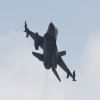
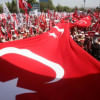
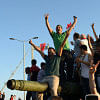

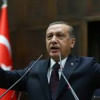


Comments